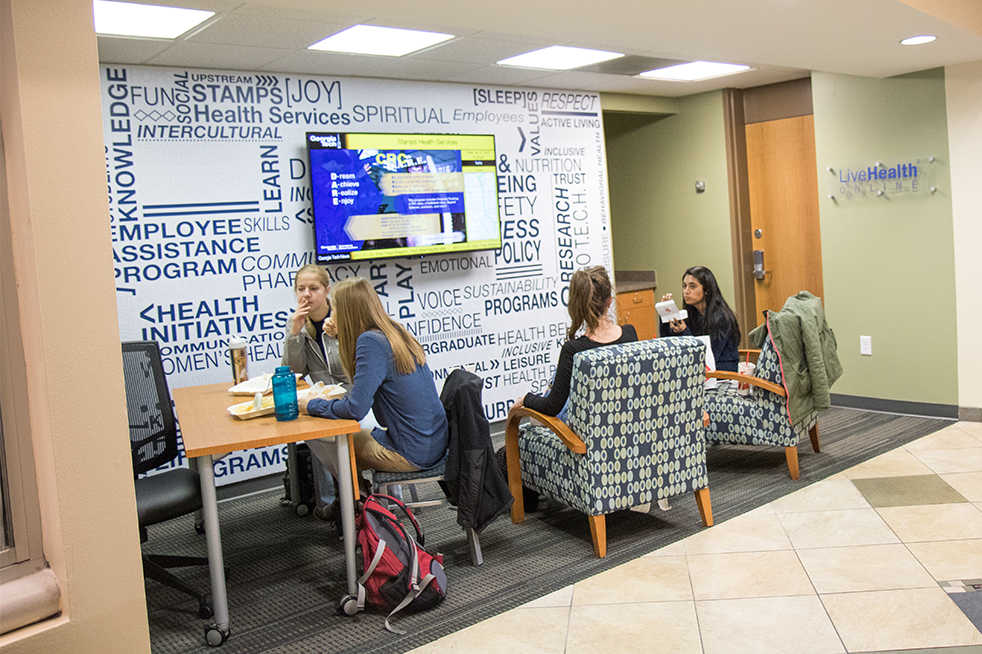The way the world receives health services is changing.
New capabilities in communication allow humans to be connected like never before, and medicine is taking advantage of this; services like LiveHealth allow patients to connect with doctors on their own time. LiveHealth doctors can connect with patients, assess their health and provide prescriptions.
The Healthy Space, a space operated by the Center for Community Health and Well-Being, is coming to the Student Center Mar. 3. The space will provide a LiveHealth kiosk equipped with blood pressure monitors and other devices that will allow doctors to be better equipped to help a patient, despite not being in the same room.
While LiveHealth is usually marketed as an alternative to going to the doctor’s office for minor illnesses, LiveHealth at Tech aims to supplement Stamps Health Services. Since there is a $49 cost for a LiveHealth visit, Dr. Suzy Harrington, director of the Center for Community Health and Well-Being, recommends using the LiveHealth kiosk only when Stamps is
not available.
Most meetings only take 10 minutes, and if a condition warrants a prescription, it can be filled at Stamps. Signing up at LiveHealth’s website before symptoms appear will allow students to quickly and easily see a doctor at the kiosk, and nobody wants to fill out online forms when sick.
LiveHealth online is not intended to be the primary care provider for Tech students, but as politicians argue over how to lower healthcare costs, telemedicine may hold the answer because of its increased access and lower price point.
As with any new technology, there are some concerns with the security and efficacy of telemedicine. While a study published in the Journal of the American Medical Association found that direct-to-consumer telemedicine lacked quality and transparency, their data was collected 11 months ago, and Dr. Harrington assures that since the service is provided through the University System of Georgia, the vetting process for LiveHealth services is rigorous.
The Center for Community Health and Well-Being also aims to reinforce positive emotional practices in the future. Their campaign for the month of February features kindness coins, two-inch-diameter coins that will be passed on from student to student for acts of kindness
around campus.
Health and Well-Being also aims to assist students in their wellness by offering free financial advice from Feb. 14 to April 13, covering subjects such as general financial planning, debt management, tax strategies, budgeting and investment planning.
